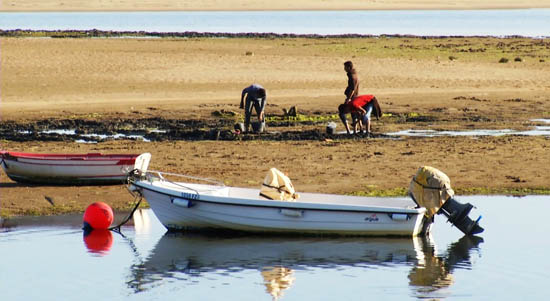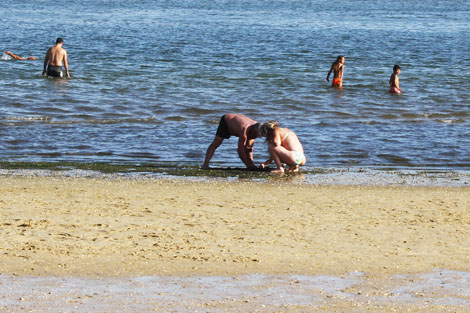 Olhãopesca will ask the Secretary of State for the Sea to review the safety levels or regulatory limits for DSP toxins. Since mid-May, the capture and sale of shellfish has been banned in the southern zone due to the presence of biotoxins, but according to the organization, it continues to be captured and sold on the parallel market, and served in restaurants, without any consequences for the known health.
Olhãopesca will ask the Secretary of State for the Sea to review the safety levels or regulatory limits for DSP toxins. Since mid-May, the capture and sale of shellfish has been banned in the southern zone due to the presence of biotoxins, but according to the organization, it continues to be captured and sold on the parallel market, and served in restaurants, without any consequences for the known health.
According to Olhãopesca, «since 2014 these bans, specifically for shellfish, are more regular and prolonged and translate into a radical change in the pattern of occurrence of bans of this type».
Olhãopesca states in a statement that "shipowners and fishermen respect the aforementioned ban", not catching that species and "direct fishing for other bivalve species of lesser commercial value or, as a last resort, enter into forced inactivity, as observed in vessels of the smaller hooks (whaling boats) which, due to their size and structural capacity, are specific to shellfish fishing'.
However, the organization says that the illegal capture of shellfish continues to occur and that there is a dedicated parallel market. “This capture is exercised by opportunistic individuals in search of easy profit, as well as by desperate dismounted catchers in search of the only source of income; in the parallel market and during periods of interdiction, the shell can be worth around €7,00 to €13,00 per kilo, while in periods without bans, its normal value is around €3,00 to €4,00 . On the other hand, the thousands of vacationers on the beaches of the eastern Algarve manually pick up clam», explains Olhãopesca.
 Due to this parallel market, “conquilla is available for sale in various restaurants without any type of veterinary control or identification and is consumed both in commercial establishments and in private homes. It is an undeniable fact, so the inspection does not have sufficient means to control a market and such a wide area», accuses the organization.
Due to this parallel market, “conquilla is available for sale in various restaurants without any type of veterinary control or identification and is consumed both in commercial establishments and in private homes. It is an undeniable fact, so the inspection does not have sufficient means to control a market and such a wide area», accuses the organization.
Although the capture of shellfish is prohibited for health reasons, «in view of the consumption that is observed [resulting from the parallel market], there is no news of diarrheal poisoning, or others, due to the consumption of shellfish or any other type of bivalve, which leads us to doubt the whole process, in the sense of questioning to what extent the safety levels (regulatory limits for DSP toxins) are not unreasonably high».
Olhãopesca says that “the current situation is creating serious social difficulties for the hook fishing sector in the southern zone where the main hook fishing fleet in the country is based, with about 50 fishing units, all of them members of Olhãopesca – Organization of Fisheries Producers of the Algarve, CRL».
The ban on the capture of bivalves in the southern zone has already led the Vila Real de Santo António City Council to request analyzes from a laboratory in Spain, and, according to the municipality, the results obtained do not justify the interdiction of capture between Tavira and VRSA decreed by IPMA.


















Comments